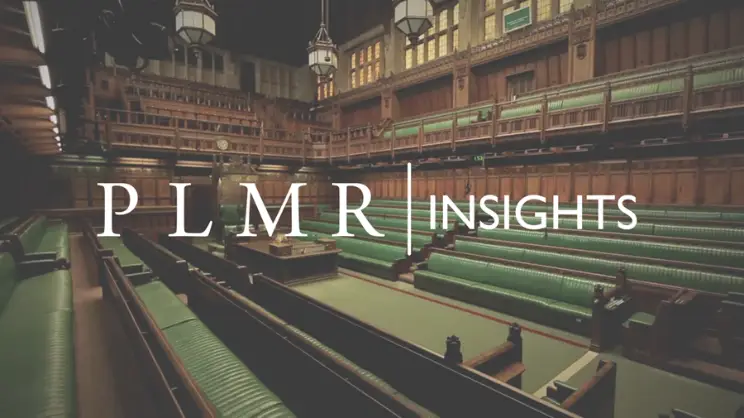This week would have marked Owen Paterson’s return to Parliament after his 30 sitting days suspension. Instead, during that time the Government has been consumed by unforced errors of its own making that have led some Conservative MPs to declare they have no confidence in the Prime Minister.
Following weeks of revelations about parties being held in the garden of 10 Downing Street, the Prime Minister apologised in the House of Commons yesterday. Or at least, he apologised for the perception that the rules were broken. It is clear that most people, including some of his own MPs, will struggle with the idea that this was a work event. Regardless, the Prime Minister has managed to buy time to try and diffuse the situation while waiting for Sue Gray’s report, and all eyes will be on this when it is published. However, it seems unlikely the Prime Minister would tie his future to this report if he was not reasonably sure of the answer. Nicola Sturgeon employed a similar strategy during the controversy over Alex Salmond, and the eventual report indeed exonerated her.
The Cabinet has rallied around the Prime Minister, accepting his apology and noting the importance of waiting for the report. Although, some including expected future leadership contenders Liz Truss and Rishi Sunak were conspicuous in the time it took them to defend the Prime Minister. Sunak’s statement was notably less than fulsome, and many MPs have declined to comment at all. Silence at such times is quite dangerous. Although it should be noted that only a few MPs such as William Wragg and Roger Gale have outright called on him to resign.
Notably, Douglas Ross, the Leader of the Scottish Conservatives, called on the Prime Minister to resign and submitted his letter of no confidence to Sir Graham Brady. Every serving Scottish Conservative MSP has backed Douglas Ross in seeking the Prime Minister’s resignation. This led Leader of the Commons Jacob Rees-Mogg to brand Ross as a “lightweight”, something that the SNP have pounced on and has considerably undermined the Conservative Party’s efforts in Scotland, and, some would say, the case for the Union. This even led respected former Conservative MSP Adam Tomkins to call for the Scottish Conservative Party to cut ties with the UK Party.
Meanwhile, there is pressure on the Metropolitan Police to investigate breaches at Downing Street. It has so far displayed extreme reluctance to do so, but is looking at the most recent evidence. It is possible a fine could be levied, but this would be an extraordinary development in what is already the embarrassing optics of the Metropolitan Police being in touch with the Cabinet Office over this issue.
However, despite public reaction, the Prime Minister’s future is firmly in the hand of his MPs. For all the Prime Minister’s faults, he is a proven election winner – the 2019 election where the Conservatives won an 80 seat majority was only 2 years ago, turning parts of the country that had never voted Conservative before blue. While Labour rising in the polls has unnerved the Conservative Party, the true test will come during the May local elections this year. If, as expected, the results are poor for the Conservatives, the pressure on the Prime Minister will increase tenfold as the Conservative Party has a long tradition of removing those seen as an electoral liability. While many hoped 2022 would mark a fresh start and a chance to refocus on and fulfil the Government’s levelling up agenda, this has not been the case. This is certainly weighing on the minds of many 2019 intake Red Wall MPs.
The Prime Minister has long had a reputation for being able to dodge bullets and easily overcome scandals that would fell other politicians, but this time feels different and very precarious for him. But a party divided over who might succeed him, and a sense of how badly the optics would play out for the Conservatives to have a leadership election in the midst of a pandemic and cost of living crisis, may end up securing his position for a while yet.




